Shutterstock
As dog owners, we want to ensure our furry friends are living their happiest lives. While dogs can’t speak, they have many ways of showing us when they’re content and joyful. Recognizing these signs can help you understand your dog better, strengthen your bond, and ensure their needs are being met. From a wagging tail and bright eyes to a relaxed demeanor, there are clear indicators that reveal a dog’s happiness. Understanding these cues allows you to provide the best care and companionship for your loyal companion.
A Loose, Wagging Tail
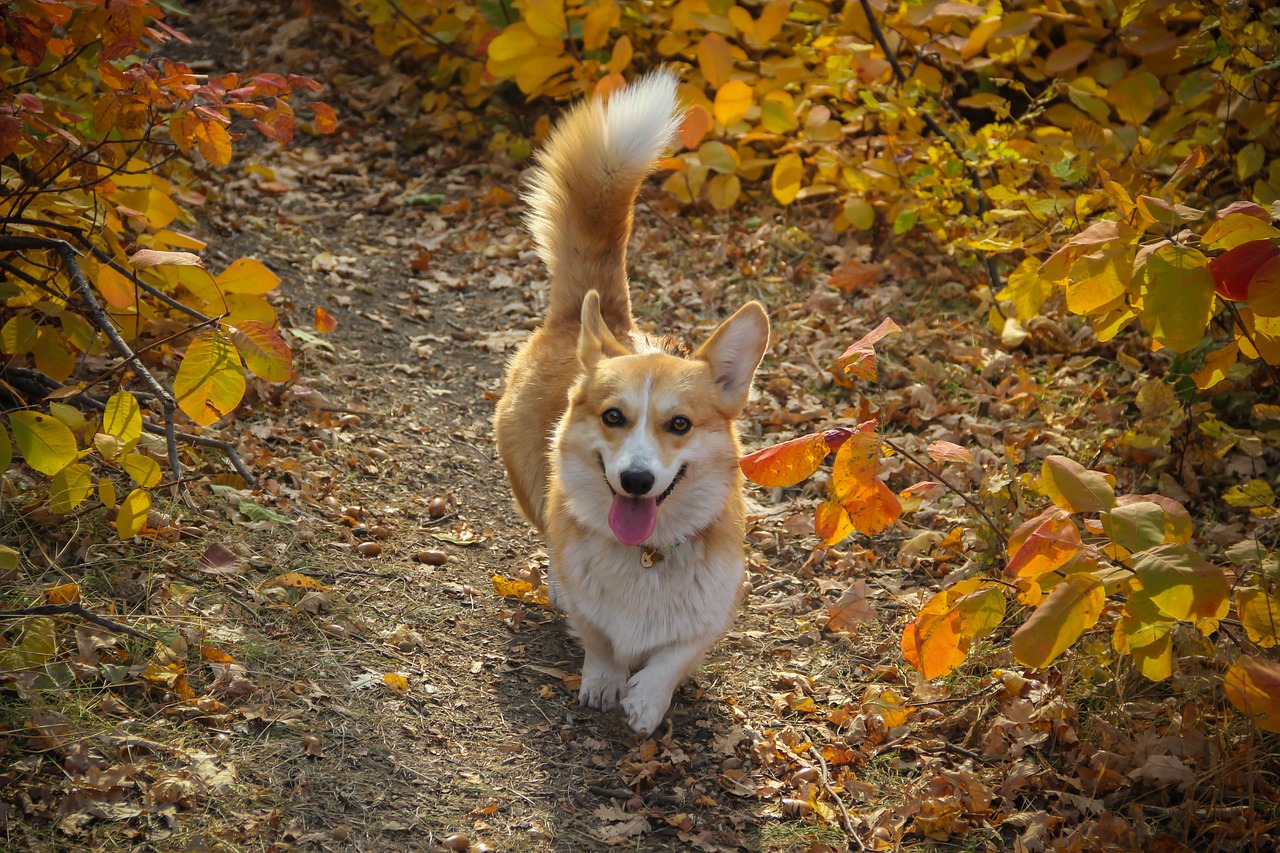 Shutterstock
Shutterstock
A loose, wagging tail is one of the most obvious indicators of a happy dog. When your dog’s tail is wagging freely, often with a whole-body wiggle, it’s a sign that they’re excited and content. Unlike stiff or low tail wags, which can signal anxiety or insecurity, a happy tail wag is relaxed and often accompanied by a joyful expression. Pay attention to how your dog’s tail moves in different situations—when it’s loose and wiggly, you can be sure they’re feeling good.
Relaxed Ears and Body Posture
 Shutterstock
Shutterstock
When a dog is happy, their body language tends to be loose and relaxed. This includes soft ears, a relaxed jaw, and a slightly open mouth. A happy dog’s body will be free of tension, with no signs of stiff movements or raised hackles. If your dog’s ears are naturally floppy, you might see them slightly perked in a comfortable way, not pinned back against their head. This relaxed demeanor is a great sign that your dog feels safe and happy in their environment.
Playful Behavior
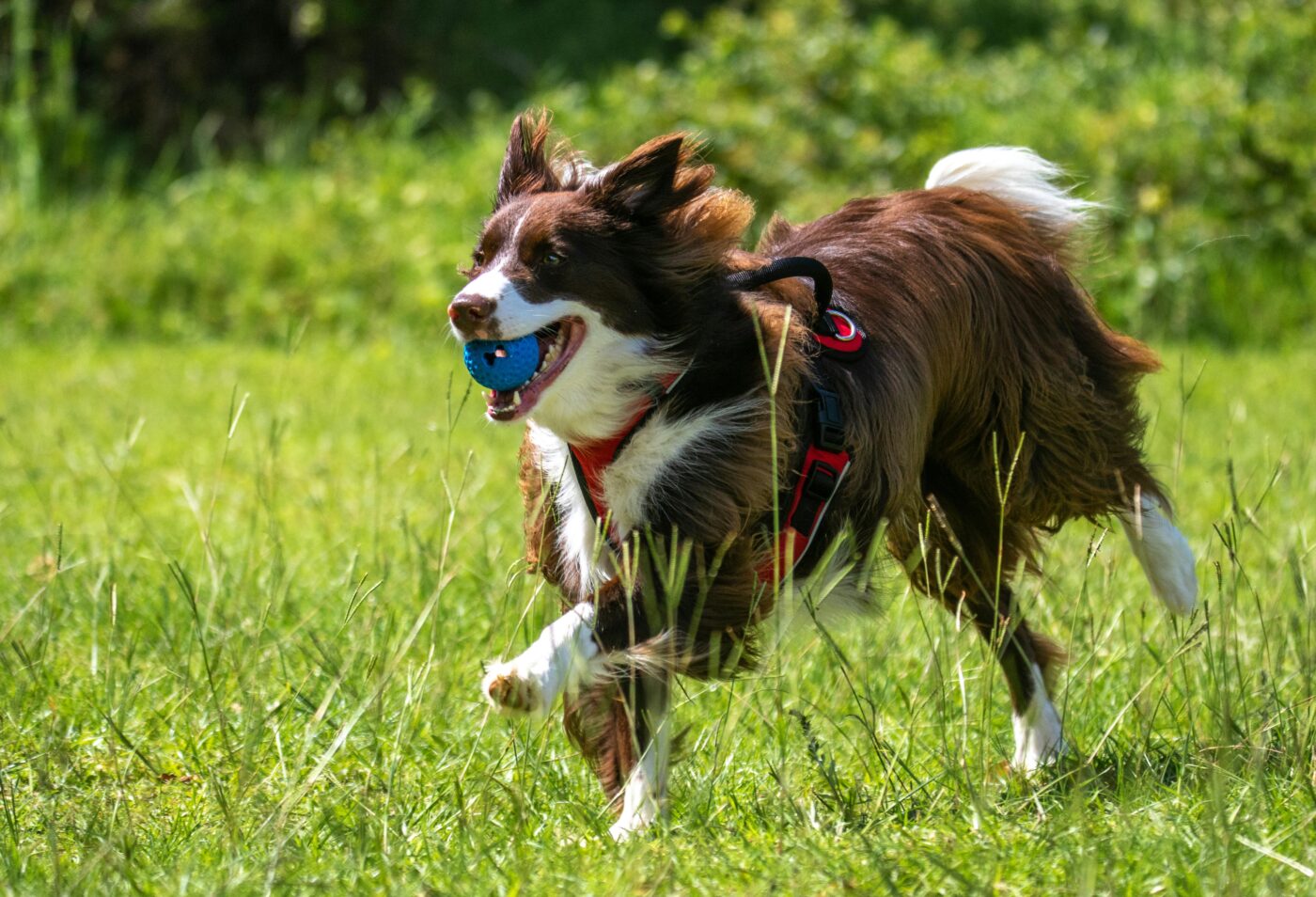 Shutterstock
Shutterstock
A happy dog is usually a playful one, and playtime is a great indicator of their mood. Whether they’re chasing after a favorite toy, playing a game of fetch, or engaging in a friendly wrestling match with you, playful behavior shows that your dog is content and feeling good. Playfulness can also include the classic “play bow,” where a dog lowers their front legs and sticks their rear in the air—an invitation to join in the fun. A dog that engages in play regularly is likely enjoying life and feeling happy.
Appetite and Interest in Treats
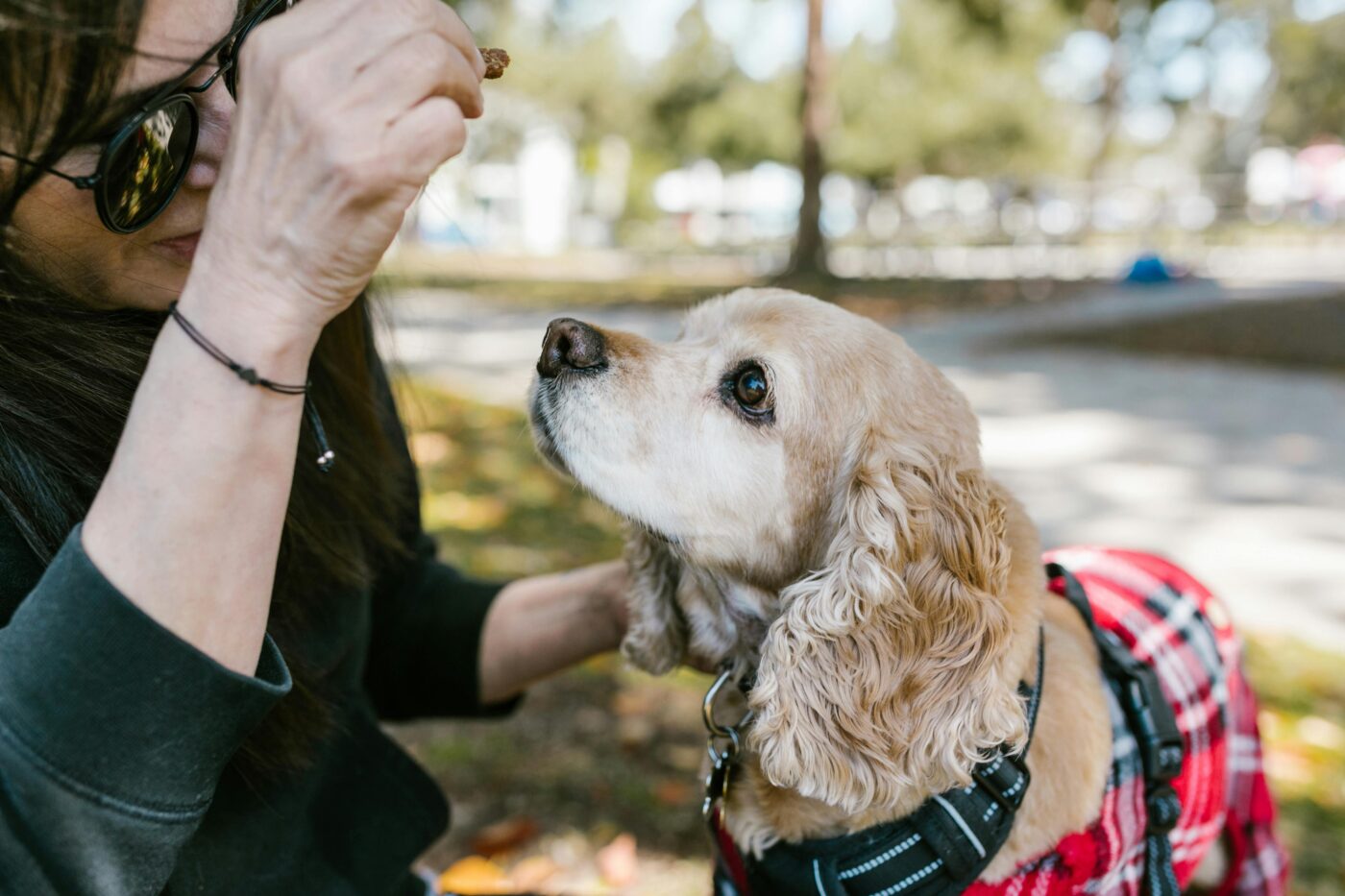 Shutterstock
Shutterstock
A healthy appetite is often a sign of a happy dog. When your dog is enthusiastic about mealtime and eager for treats, it’s a good indicator that it’s feeling content and in good spirits. Happy dogs usually have a healthy appetite and are interested in food and rewards, showing excitement when it’s time to eat. While changes in appetite can sometimes indicate health issues, a dog that consistently enjoys its food is likely feeling both physically and emotionally well.
Plenty of Belly Exposures
 Shutterstock
Shutterstock
When a dog rolls over to expose their belly, they’re showing that they feel safe and trusting in their environment. A happy dog will often lie on their back with their belly up, inviting you to give them a belly rub. This position is a sign of vulnerability, meaning that your dog feels comfortable enough to let their guard down around you. If your dog frequently offers up their belly for rubs, it’s a clear sign that they’re feeling secure, loved, and happy.
Leaning Into You
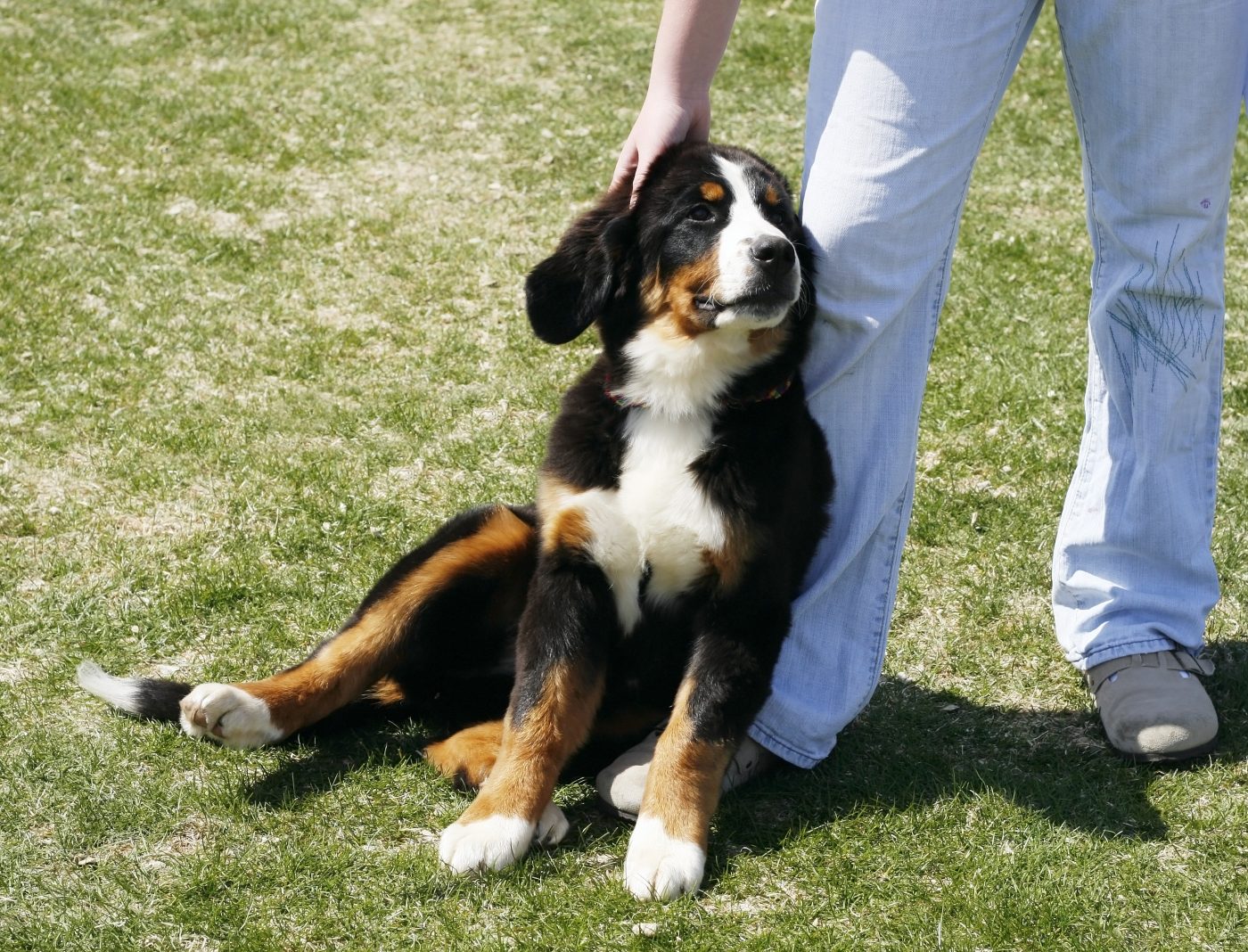 Shutterstock
Shutterstock
One of the sweetest signs of a happy dog is when they lean into you for affection. This behavior is a way for dogs to show that they trust you and want to be close to you. Whether they’re pressing their head against your leg or leaning their whole body into your lap, this gesture shows that they see you as a source of comfort and safety. Dogs that lean into their owners for cuddles are expressing their happiness and the close bond they share with you.
Bright Eyes and a Relaxed Expression
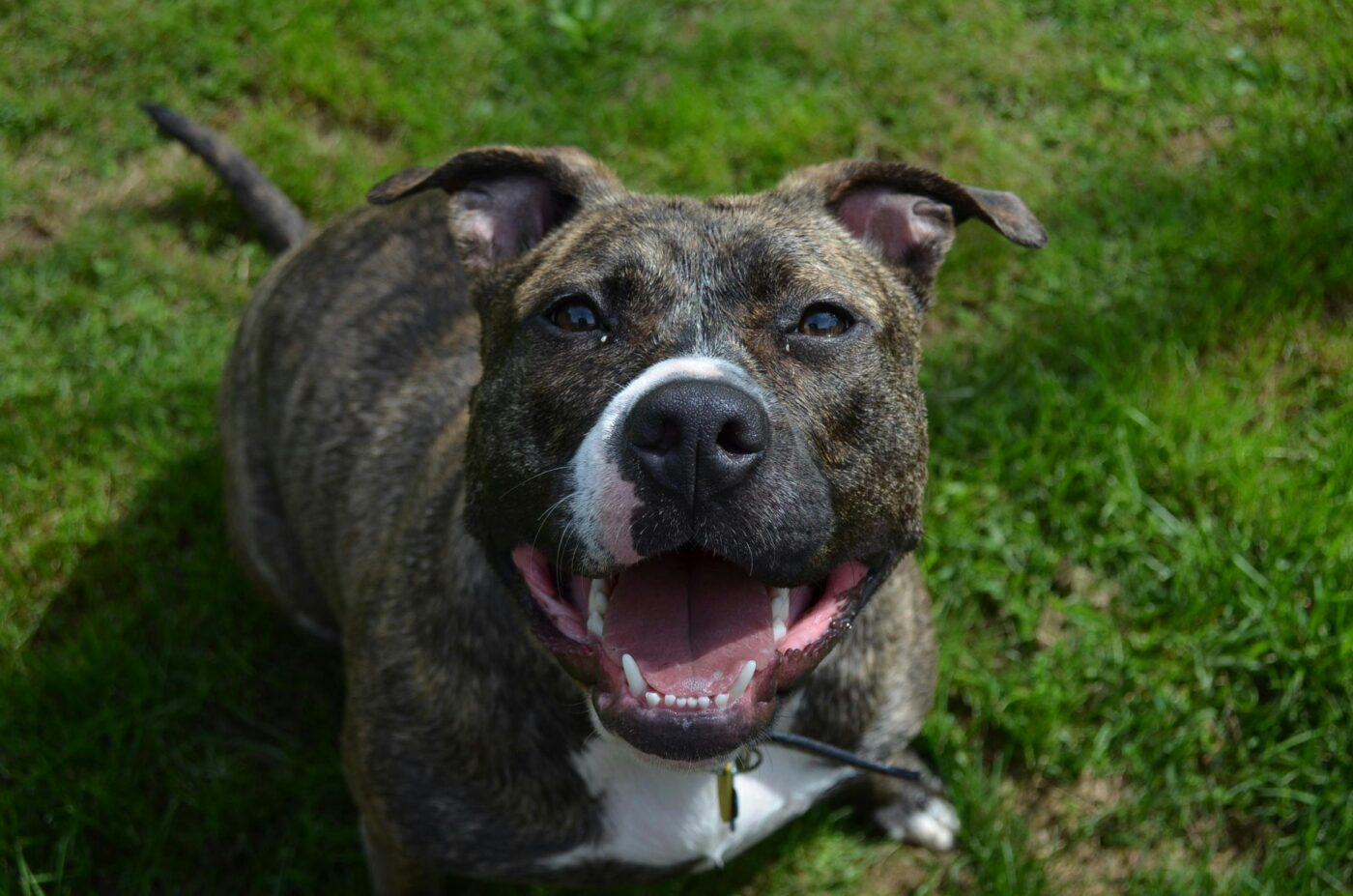 Shutterstock
Shutterstock
A happy dog often has bright, sparkling eyes and a relaxed expression. Their eyes will be open and focused, with a gentle, contented gaze. A relaxed dog may even squint slightly when they’re feeling particularly cozy or when you’re petting them in their favorite spot. A dog’s face can tell you a lot about their mood, and a happy dog will have a soft, easygoing look about them, free from signs of stress like furrowed brows or darting eyes.
Soft Whines and Contented Sighs
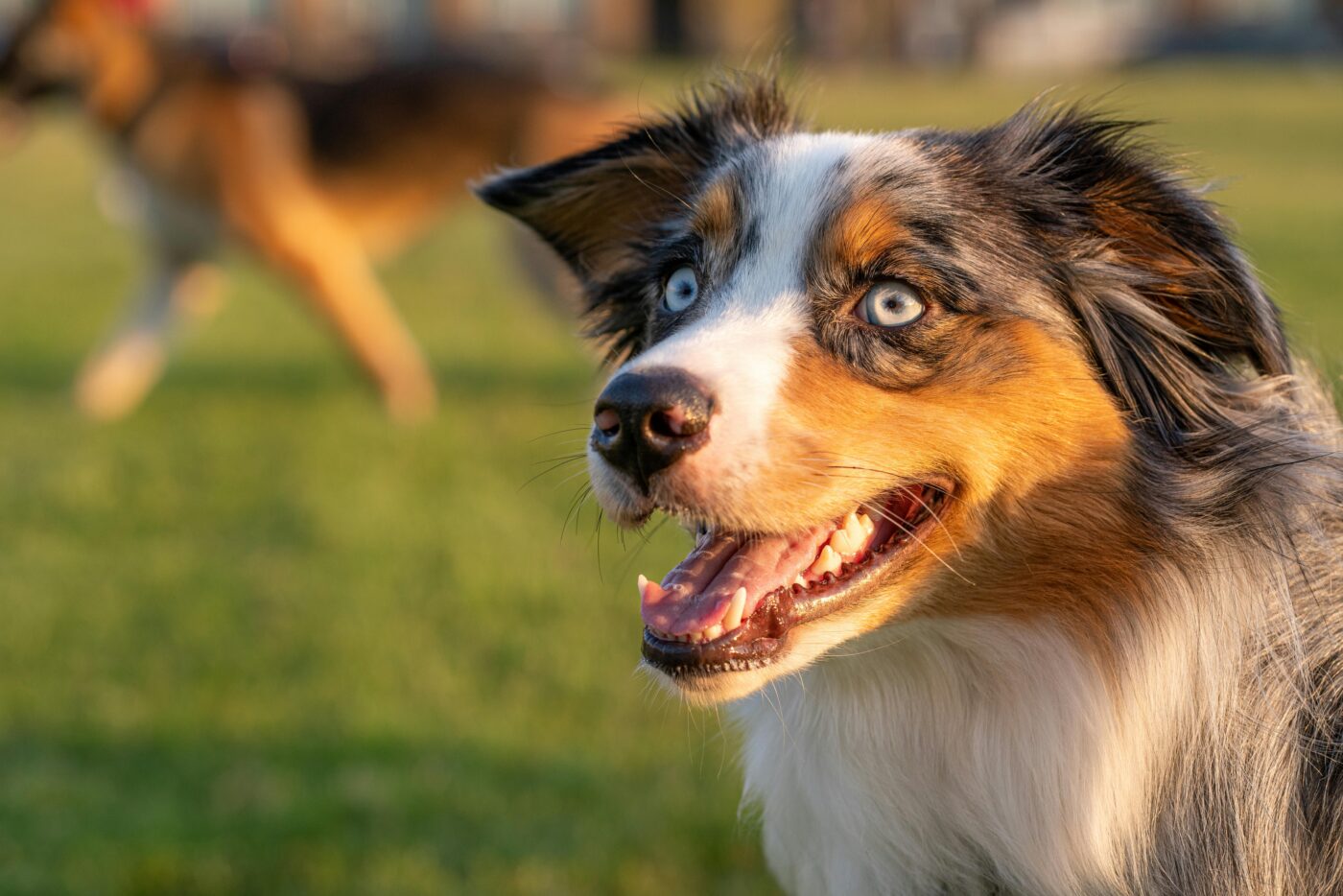 Shutterstock
Shutterstock
While excessive barking can indicate stress or excitement, certain sounds can be a sign of a happy dog. Contented sighs, soft whines, and little grunts or groans are often ways for dogs to express their relaxation and enjoyment. You might notice these noises when your dog settles into their bed after a long walk or when you’re giving them a soothing pet. These happy sounds show that your dog feels safe, satisfied, and comfortable in their environment.
Following You Around
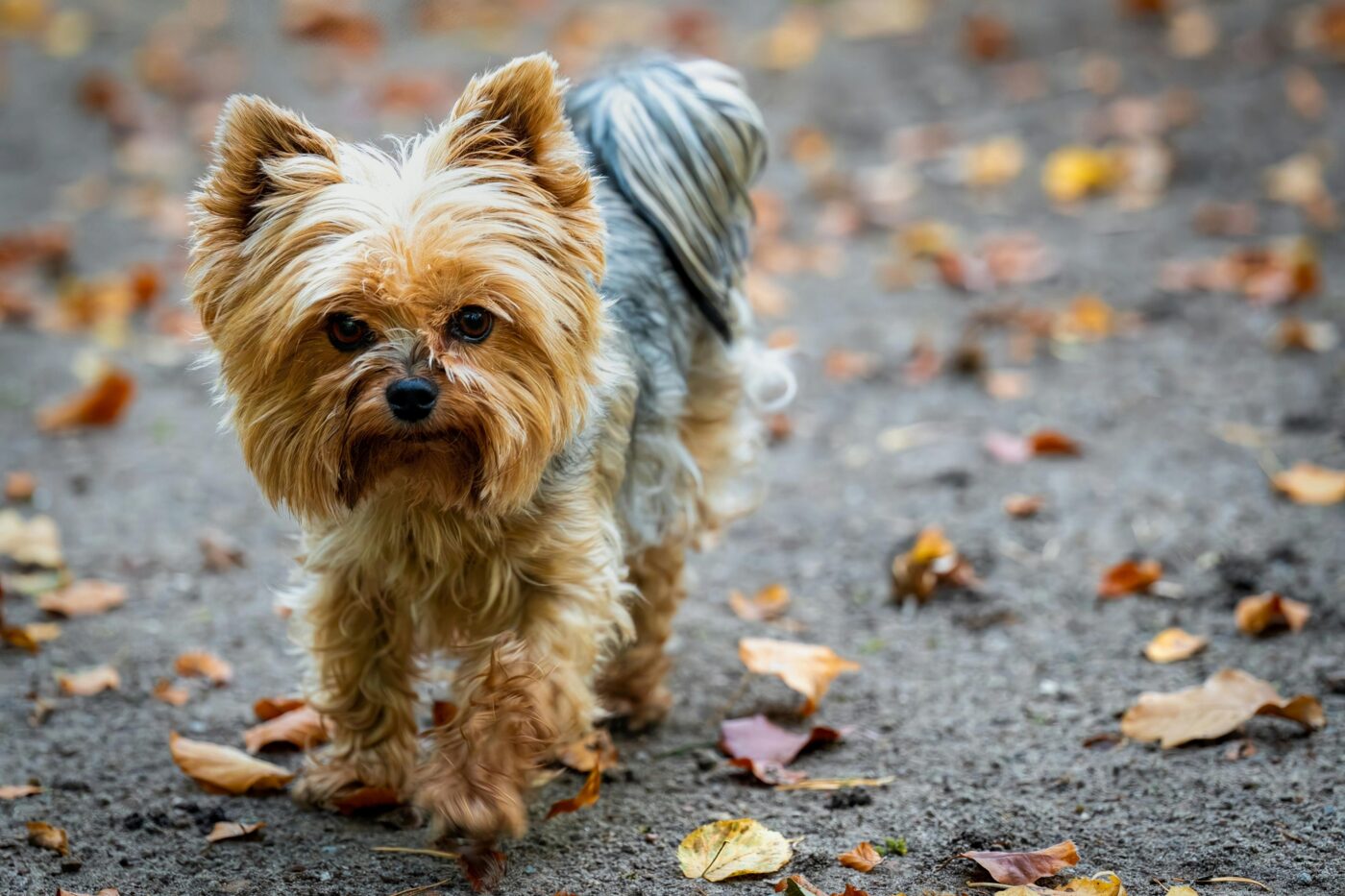 Shutterstock
Shutterstock
A dog that follows you around the house isn’t necessarily clingy—they’re showing that they enjoy your company and want to be near you. Happy dogs often like to be in the same room as their favorite people, even if they’re lounging quietly nearby. This behavior, known as “shadowing,” is a sign that your dog feels secure and happy in your presence. It’s their way of saying, “I like being around you,” which is a great indicator that they’re content.
Tail-Up Wag and Butt Wiggle
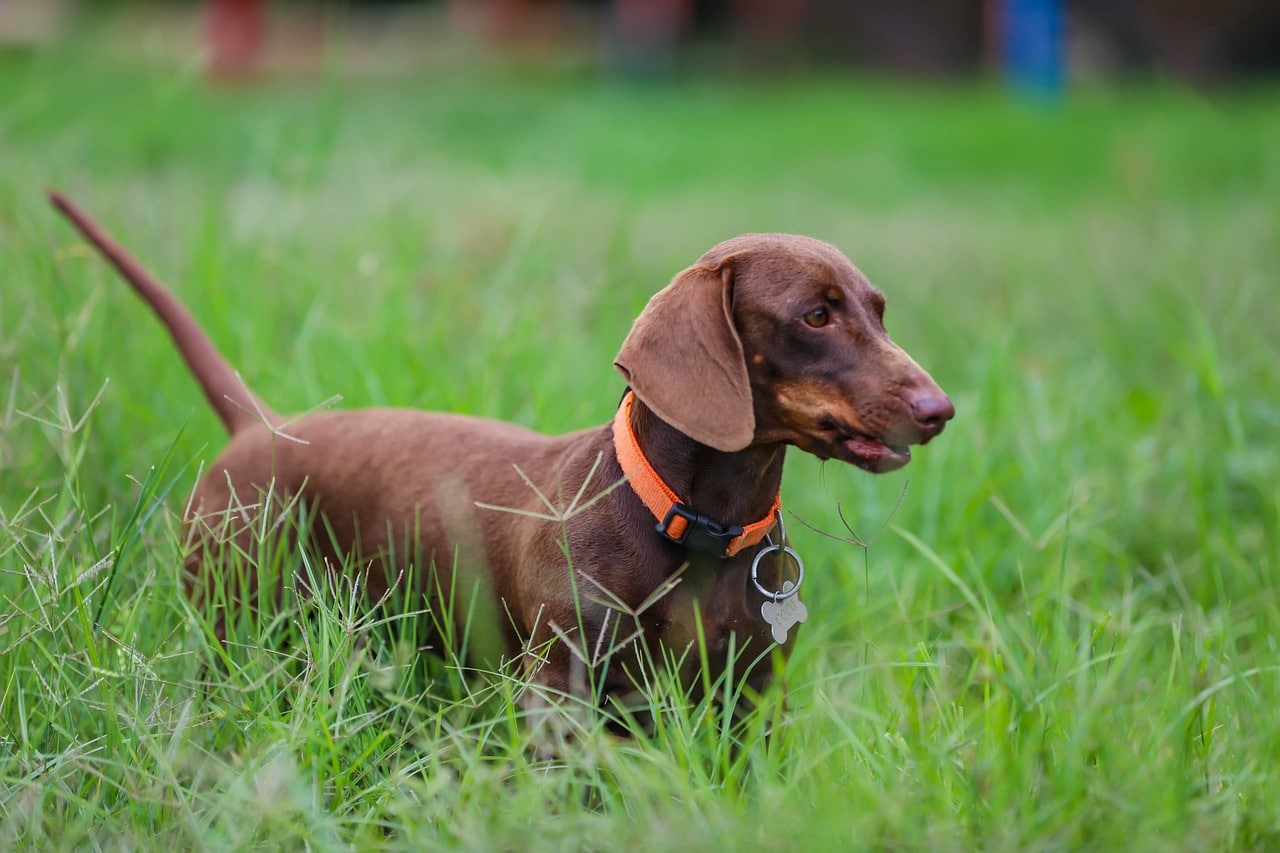 Shutterstock
Shutterstock
While wagging tails can mean many things, the classic “butt wiggle” is a strong sign of a happy dog. When a dog’s whole rear end wiggles along with their tail, it’s a sure sign of excitement and joy. This kind of wag often happens when you come home after a long day or when your dog sees their favorite person or toy. A dog that greets you with a wiggly butt is clearly happy to see you and eager for whatever fun lies ahead.
Curiosity and Exploration
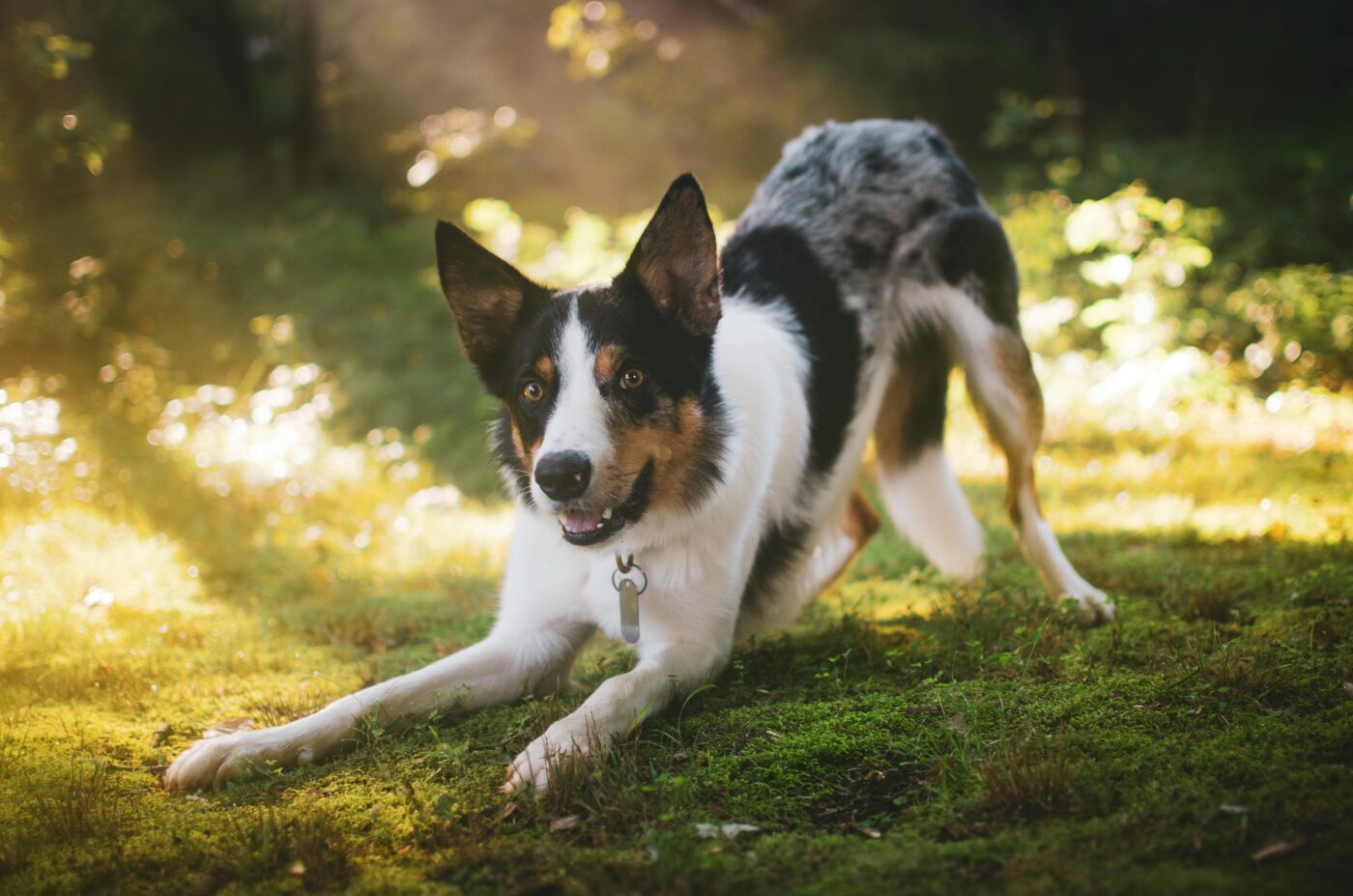 Shutterstock
Shutterstock
Happy dogs are curious dogs—they’re eager to explore their surroundings, sniff new smells, and investigate the world around them. A dog that enjoys exploring during walks, checking out new toys, or investigating new visitors is showing signs of mental engagement and happiness. Curiosity indicates that your dog feels safe and secure enough to focus on its environment rather than being on high alert. This playful curiosity is a hallmark of a dog that is feeling content and stimulated.
Enjoying Quality Sleep
 Shutterstock
Shutterstock
A well-rested dog is often a happy one. Dogs that feel safe and comfortable will sleep soundly, often stretched out in relaxed positions or curled up in their favorite spot. Happy dogs tend to get plenty of rest, taking naps throughout the day and sleeping deeply at night. If your dog frequently sleeps in a relaxed position with their belly exposed or legs splayed, it’s a sign that they feels secure in their environment. Good sleep habits are a reflection of your dog’s overall contentment and well-being.
The Secret To Doggy Joy
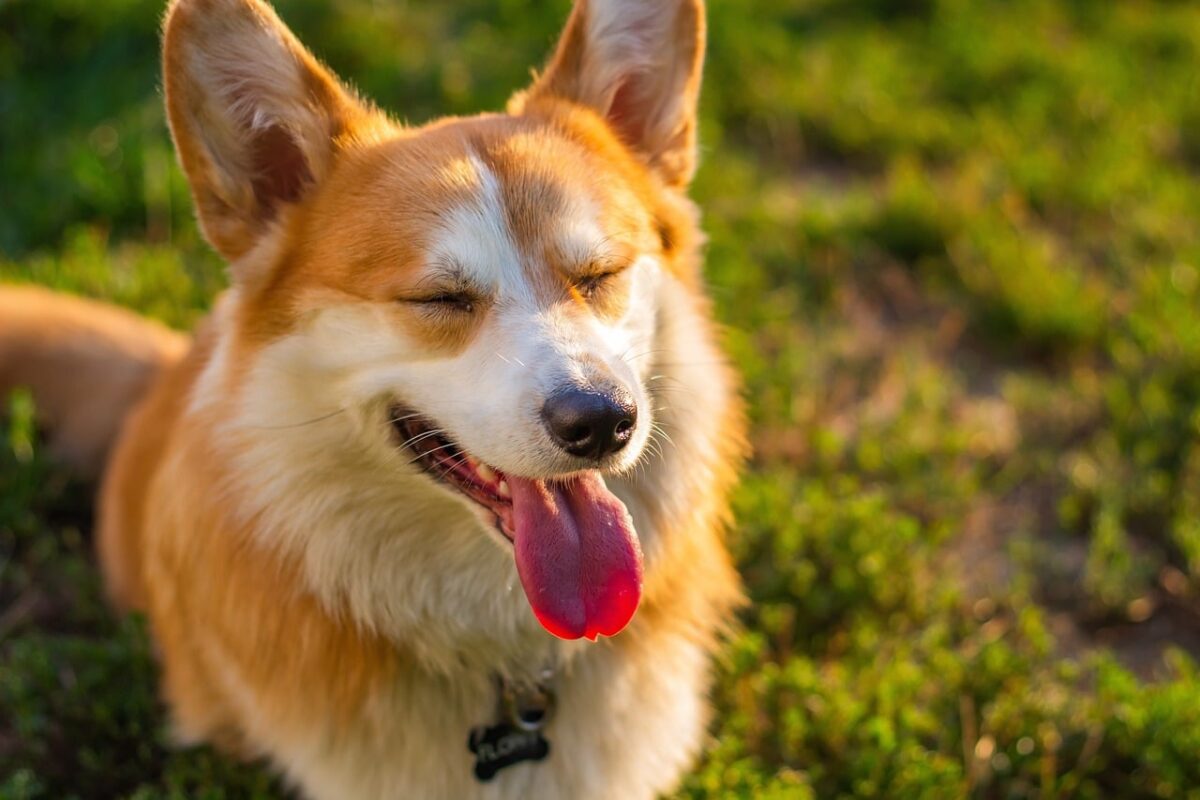 Shutterstock
Shutterstock
Now that you know how to spot a happy dog, you can truly appreciate those special, joyful moments. Whether it’s a wiggly tail, a contented sigh, or a playful bounce, dogs have endless ways of expressing their love and happiness. Being able to recognize these signs helps you connect more deeply with your furry friend. And remember, when your dog looks at you with those big, adoring eyes, they’re probably thinking, “You’re the best human ever (but, of course, a little extra treat wouldn’t hurt!).”







